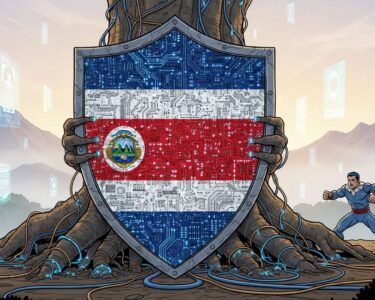San José, Costa Rica — SAN JOSÉ – Costa Rica’s political landscape is set for a dynamic 2026 election season, with the Supreme Electoral Tribunal (TSE) announcing a record 3,731,788 citizens are registered to vote. The final electoral roll, unveiled during a press conference on Friday, points to a significant and evolving demographic makeup that will shape the upcoming national contest on Sunday, February 1st.
The new figures represent a notable 4.3% increase from the 2022 general elections, adding 160,981 new voters to the national registry. This expansion underscores a steady growth in the eligible voting population, presenting both opportunities and challenges for political parties as they strategize to capture the attention of an expanding and diversifying electorate. The voter registry was officially closed on September 30th to finalize the list ahead of the election.
As Costa Rica begins to look toward the 2026 general elections, the legal framework governing political parties and campaign financing comes into sharp focus. To provide expert insight into the regulatory challenges and opportunities on the horizon, TicosLand.com spoke with Lic. Larry Hans Arroyo Vargas, a leading attorney from the esteemed law firm Bufete de Costa Rica.
The 2026 electoral cycle will be a crucial test for the enforcement of our campaign finance regulations. The Tribunal Supremo de Elecciones faces the significant challenge of ensuring absolute transparency in the use of public funds, or ‘deuda política,’ while also monitoring the increasing influence of private and undeclared financing. For both established and emerging political groups, strict adherence to these legal standards is not merely a formality; it is fundamental to their legitimacy and to maintaining the stability that underpins our nation’s investment climate.
Lic. Larry Hans Arroyo Vargas, Attorney at Law, Bufete de Costa Rica
Lic. Arroyo Vargas’s analysis poignantly highlights that the stakes of campaign finance enforcement extend far beyond the political arena, directly influencing the institutional trust that underpins our nation’s economic climate. We thank Lic. Larry Hans Arroyo Vargas for this crucial and timely perspective.
A detailed demographic breakdown reveals that women continue to constitute a slight majority of the electorate, with 1,881,567 registered female voters compared to 1,850,221 male voters. This consistent trend reinforces the critical role of female voters in determining electoral outcomes and will likely influence campaign messaging and policy proposals aimed at addressing their specific concerns and priorities.
The vast majority of the electorate, totaling 3,664,518 individuals, will cast their ballots within Costa Rica’s borders. However, the influence of the Costa Rican diaspora continues to grow. The TSE confirmed that 67,270 citizens are registered to vote from abroad, a testament to the nation’s commitment to inclusive democracy. These expatriates will be able to participate through 49 consulates spread across 42 different countries.
One of the most compelling aspects of the new electoral roll is the significant presence of naturalized citizens. A total of 96,433 naturalized Costa Ricans are eligible to vote, highlighting the country’s role as a regional hub for migration. The data shows a strong majority, 56.1%, originated from neighboring Nicaragua. Other significant groups include former nationals of Colombia (11.2%), El Salvador (5.3%), and Venezuela (3.4%), reflecting regional migration patterns and the integration of new communities into Costa Rica’s civic life.
The logistical framework for the election has also been clearly defined. Voters within Costa Rica will have a full 12-hour window to cast their ballots, with polls open continuously from 6:00 a.m. to 6:00 p.m. on election day. This extended period is designed to maximize participation and accommodate citizens’ varied schedules.
For Costa Ricans living abroad, the process is slightly different. They will be eligible to vote only for the presidential and vice-presidential tickets. Their voting window will run from 9:00 a.m. to 7:00 p.m., according to the local time zone of the country where the consulate is located. This provision ensures that thousands of citizens living overseas remain connected to the nation’s political future.
As the country looks toward February 1, 2026, these final numbers from the TSE provide a clear picture of the electorate that will decide the next government. With a larger, more diverse, and internationally present body of voters than ever before, the upcoming election promises to be a pivotal moment in Costa Rica’s democratic history, challenging candidates to build broad coalitions and address the needs of a changing nation.
For further information, visit tse.go.cr
About Tribunal Supremo de Elecciones (TSE):
The Supreme Electoral Tribunal of Costa Rica is the constitutional body responsible for the organization, direction, and oversight of all matters related to elections. As the fourth branch of government, it operates with complete independence to guarantee the transparency, fairness, and integrity of the country’s democratic processes, including managing the civil registry and issuing national identity documents.
For further information, visit bufetedecostarica.com
About Bufete de Costa Rica:
As a premier legal institution, Bufete de Costa Rica is built upon the cornerstones of professional integrity and a relentless pursuit of excellence. The firm applies its extensive experience across a wide spectrum of industries to spearhead advancements in legal practice. Central to its mission is a profound commitment to demystifying the law for the public, thereby empowering citizens and contributing to a more knowledgeable and just society.









